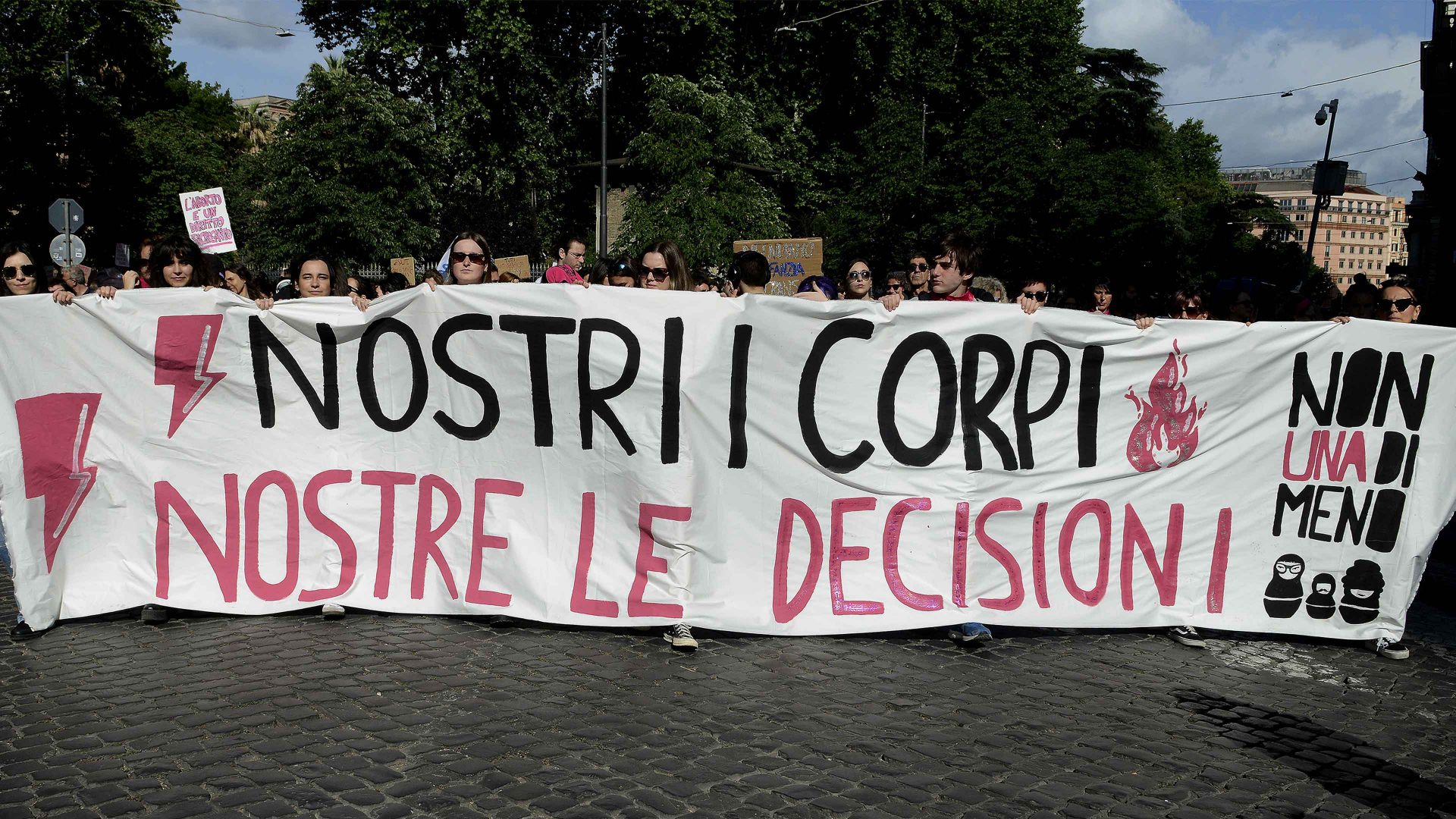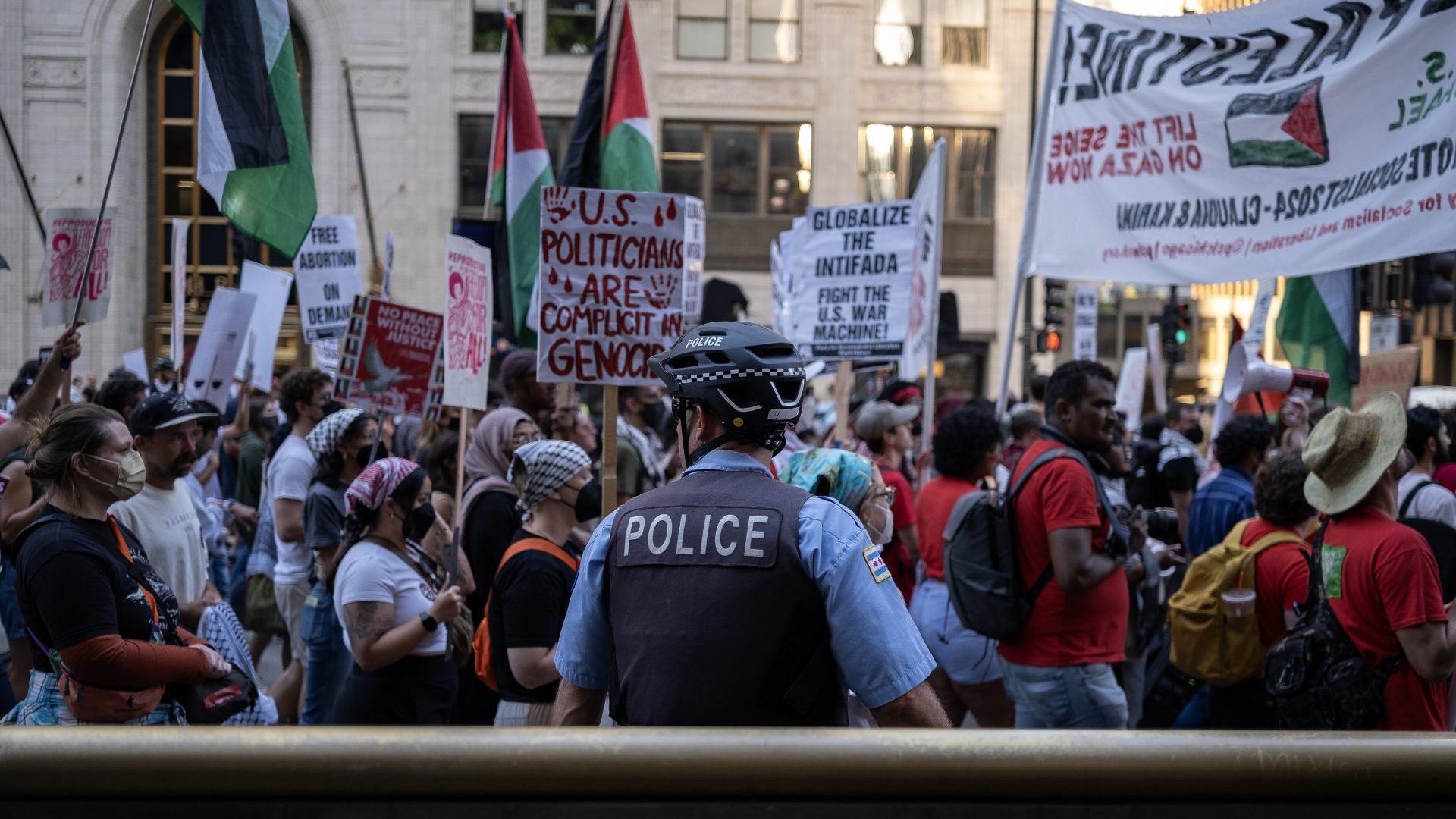Looking across the room, 32-year-old Cinzia* heaves a drawn-out sigh.
“I can’t see the sense in it,” she says, her eyes on her watch. “It’s a scare tactic and it’s frightening. I want to go to Rome, look them in the eyes and ask them if they think this law is humane.”
Cinzia has every right to be concerned. Giorgia Meloni’s Brothers of Italy (FdI) party recently put forward an amendment to the 1978 Abortion Legislation (Law 194) meaning that anti-abortion activists will now be allowed to enter clinics. The activists, who are obviously not allowed to be violent, will be permitted to give out advice in support of motherhood to those seeking an abortion.
The change set off a debate throughout not only the country but Europe, too. Elly Schlein, leader of the opposition, said that abortion in Italy was a right that now only existed on paper. Spain’s equality minister, Ana Recondo, said the amendment undermined a right recognised by law.
Away from politics, the debate has jumped from the political to the personal. Cinzia had an abortion seven years ago due to unstable financial and personal conditions. Under Law 194, she and any other woman wanting an abortion can obtain one within 90 days. She has still not told her family because she feels guilty and upset, and says discussion of the new amendment – her family are strongly in favour – has made family gatherings extremely distressing.
“They talk about it like it’s a good thing, without knowing anything about the process,” says Cinzia. “They don’t know it, but they are reopening an old wound in me that I’m not ready to open. I feel furious at the government, exhausted with all the conversations and numb due to shock, all at the same time. It’s not normal for one person to feel all of this.”
As a topic of conversation, abortion tends to be a divisive subject among friends and even family in Italy. A large part of that is down to the Catholic Church. Yet it’s a subject of interest that has cropped up in politics more and more frequently since Meloni came to power – the government recently tabled an amendment stating that women had to hear the foetus’s heartbeat before getting an abortion. Regions such as Marche, where Meloni has strong support, have also restricted access to the abortion pill.
Meloni’s move is a huge step backwards. Article 3 suggests doctors conducting abortions should search for other options for the woman wanting the abortion, which fittingly leads to the next point: doctors in Italy can legally object to carrying out abortions. They are regarded as “conscientious objectors”.
According to health ministry data, 63% of gynaecologists in Italy are “conscientious objectors”, with the percentage increasing to 96.4% and 88.1% in the conservative southern regions of Molise and Basilicata. What’s more, Italy has one of the world’s lowest abortion rates; 63,653 were carried out in 2021.
This can take away women’s right to decide, even if that means their life is at risk. Take Valentina Milluzzo, a 32-year-old Sicilian resident who died of septic shock because her gynaecologist refused to abort her twins when she was 19 weeks pregnant. Valentina went into premature labour and could have been saved were it not for her gynaecologist being a “conscientious objector”. Both Valentina and her twins died. This happened in 2016, eight years before these amendments came into play.
What might happen in the areas where abortion activists are numerous is something worth thinking about. Will they turn violent? Will there be more children in care homes? Will there be an increase in cases of post-natal depression?
“I know I should consider myself one of the ‘lucky’ few,” Cinzia adds. “But I don’t feel it at all. I’m worried that with this new amendment, deaths might become more frequent.”
Jessica Lionnel is a freelance journalist based in Rome




